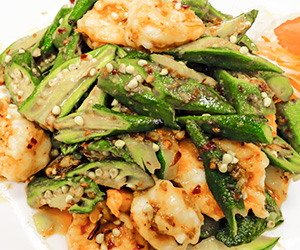
.jpeg)
Growing up in my parent’s American Chinese restaurant 1990’s (in Malden Massachusetts, in a place on main street called Bobo’s), Scorpion bowls, Pu Pu platters, zombies, Mai Tais’, and Peking ravioli were all the norm (fun story, Peking Ravioli-just regular pork dumplings-got their name so Joyce Chen could offer Chinese food to the Cambridge Italian Immigrant population who did not know anything about Chinese cuisine). Overall Tiki cocktails were primarily rum which was still cheap (and strong) and because Chinese restaurants largely served poor immigrant and worker populations there was a demand for a low price of drink. Though we may think of Chinese restaurants now being largely ‘take-away’ or fast food style restaurants, in the 70s and 80s many Chinese restaurants still had lounges or bars and found it easy to pair ‘Tiki’ drinks with their food.

During the 1980s through the 2000s American Chinese restaurants became the stewards of Tiki drinks during a period when Tiki culture, music and art largely faded from popularity (until the ‘craft’ TIki movement of the early 2000s). Wusong Road wants to tell the story of Tiki during the 1970s through present day, where there was a strong and largely unspoken connection between tropical fruit forward cocktails, the Tiki or ‘Polynesian’ aesthetic and American Chinese restaurants (even at Don the Beachcomber’s restaurant he famously served ‘exotic’ food which was just Cantonese food with pineapple). Tiki is now seen by many as a problematic vestige of colonial nostalgia, with it’s popularity largely fading from the American psyche in the 1970s through early 2000s. TIki also acted as a form of nostalgia for the G.I.s who returned from World War II who may have spent time recovering from injuries in Hawaii or had fond memories of the Tropics during their time abroad. Rums were cheaper than whisky or gin and thus far more affordable for middleclass Americans. In the 1950’s and 1960’s Tiki was celebrated as a tropical escapism at an affordable price. Let’s be up-front with Tiki and Tiki culture.


 0 kommentar(er)
0 kommentar(er)
